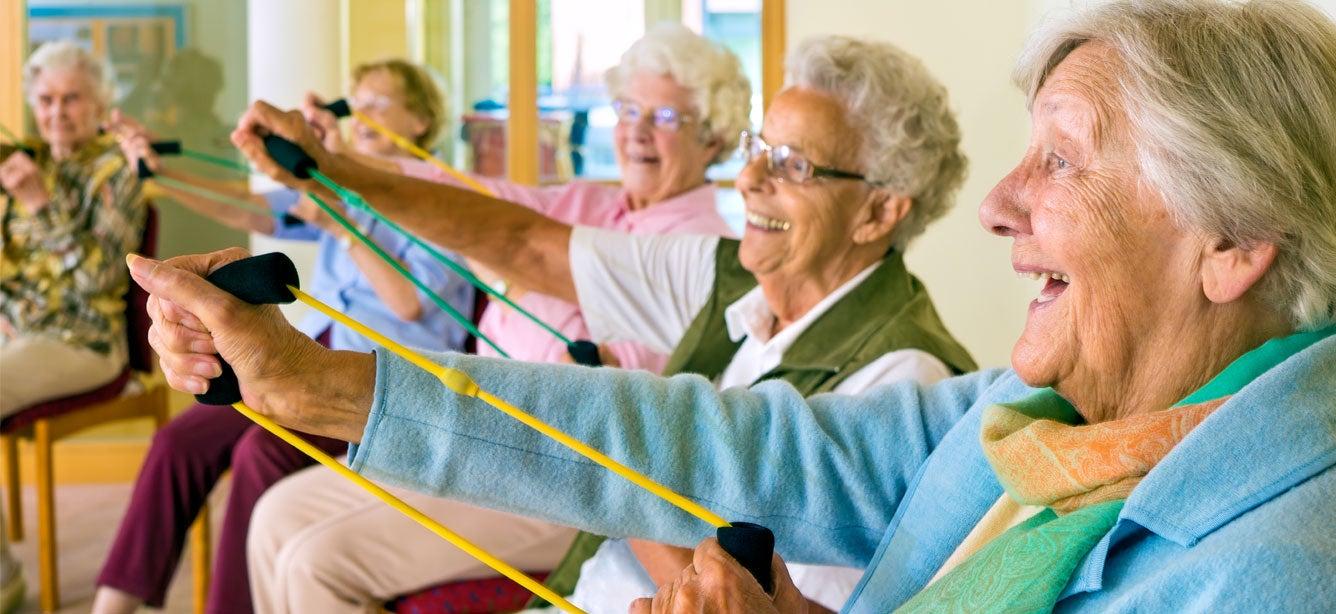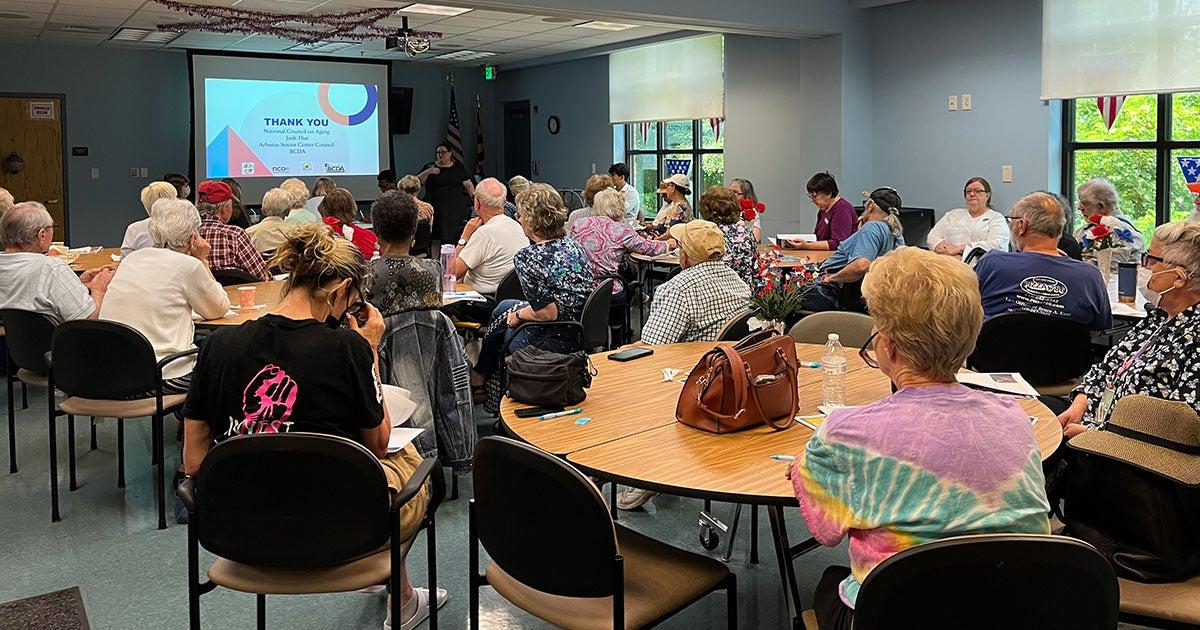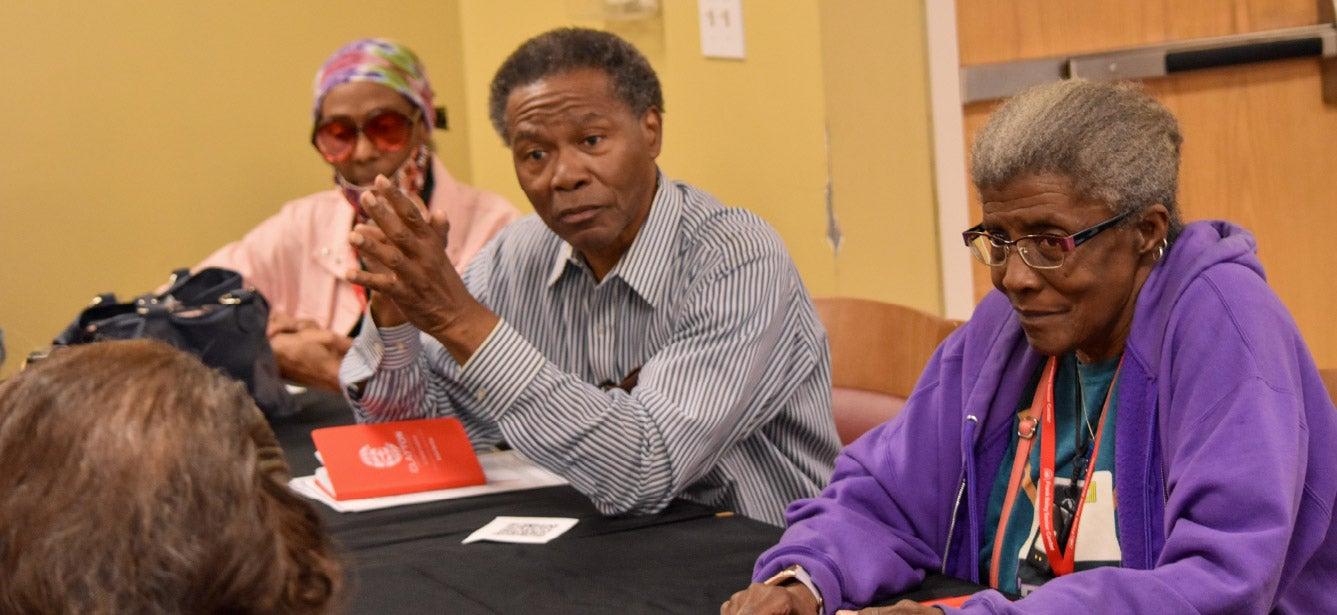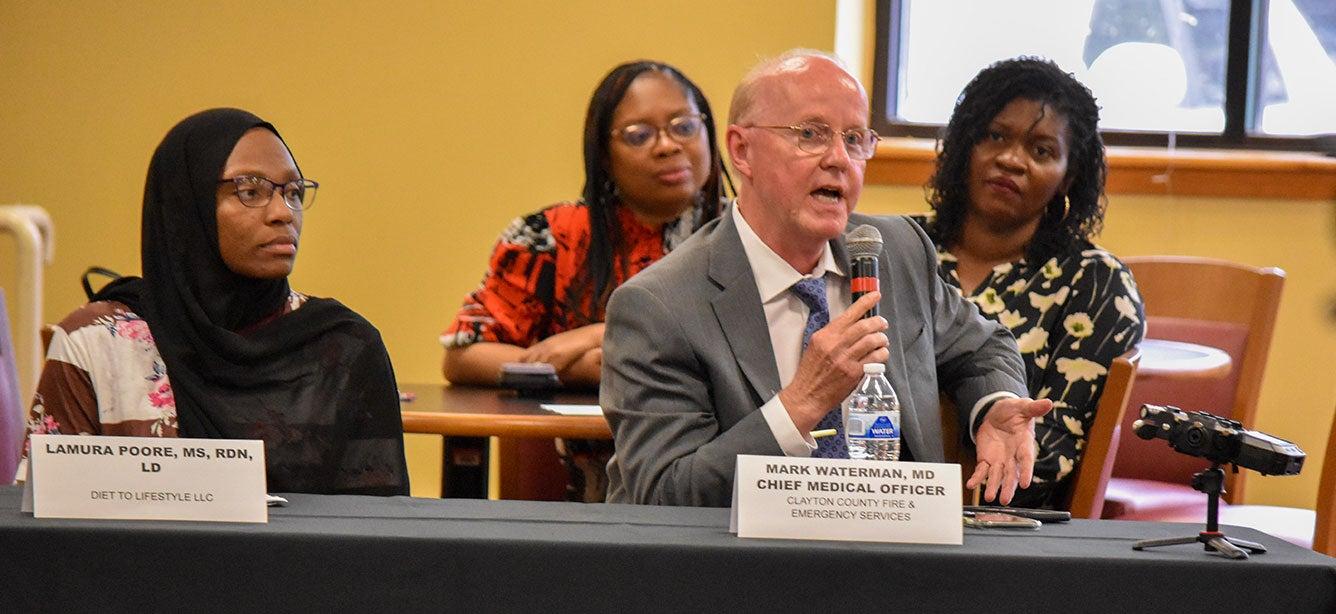
NCOA’s Center for Healthy Aging provides technical assistance and support to community-based organizations on implementing evidence-based health promotion programs and educating older adults on important health topics. Here are seven suggestions you can use to improve the health of your senior center participants.
1. Learn more about evidence-based programs (EBPs)
EBPs offer proven ways to promote health and prevent disease among older adults. They are based on research and provide documented health benefits, so you can be confident they work. Learn more about:
- Evidence-based programs
- Falls prevention
- Chronic Disease Self-Management Education
- Physical activity and senior fitness
- Behavioral Health (depression, anxiety, and/or substance abuse management)
2. Host an EBP at your senior center or locate workshops in your area.
Use the NCOA map and evidence-based program search to identify and connect with licensed sites and organizations in your state that are implementing evidence-based falls prevention programs or Chronic Disease Self-Management Education (CDSME). Don’t see an organization in your state? Contact us!
3. Partcipate in Falls Prevention Awareness Week
Falls Prevention Awareness Week is a national health campaign observed on the first day of fall to increase awareness around falls health and injury prevention. Get ideas to raise awareness in your community. Find ideas for celebrating Falls Prevention Awareness Week at your senior center.
4. Share facts about vaccines
The immune system weakens with age, which makes it harder to fight disease like COVID-19, influenza or the flu, and pneumonia. As a result, adults age 65 and older are more likely to experience these diseases and suffer complications like hospitalization and death. Use these resources to educate senior center participants about vaccines, which are the best ways to prevent these diseases:
- COVID Boosters, Variants, and Treatments: What You Need to Know and Do Now
- It's Time to Get Your Flu Shot: What You Need to Know During Flu Season
- Does Medicare Cover the Pneumonia Vaccine?
- Is There a Free Shingles Vaccine for Seniors? Here's What You Should Know
5. Educate your senior center participants about Medicare preventive benefits
Many are free and can be used to avoid significant problems in the future. These preventive services include the annual wellness benefit that consists of depression, diabetes and other screening, and medication reviews; bone mass measurements, and medical nutrition therapy with a dietitian. Use rhw NCOA article Medicare Preventive Services: Coverage and Costs to educate yourself and your participants about these important benefits.
6. Share the many health-related articles on NCOA.org
A few you can share and/or use for discussion with your senior center participants:
- Medication Management for Older Adults
- Diabetes for Older Adults
- Heart Disease for Older Adults
- Social Isolation & Loneliness for Older Adults
- Sleep for Older Adults
- Sexual Health for Older Adults
- Nutrition: Making Every Bite Count: 3 Steps to Healthier Eating with MyPate
- Parkinson’s Disease: At a Glance, Early Signs and Symptoms, and Mental Health Aspects
- How to Care for Your Eyes and You Age and Get Help with Vision Loss
- What Older Adults Need to Know About Hearing Loss



